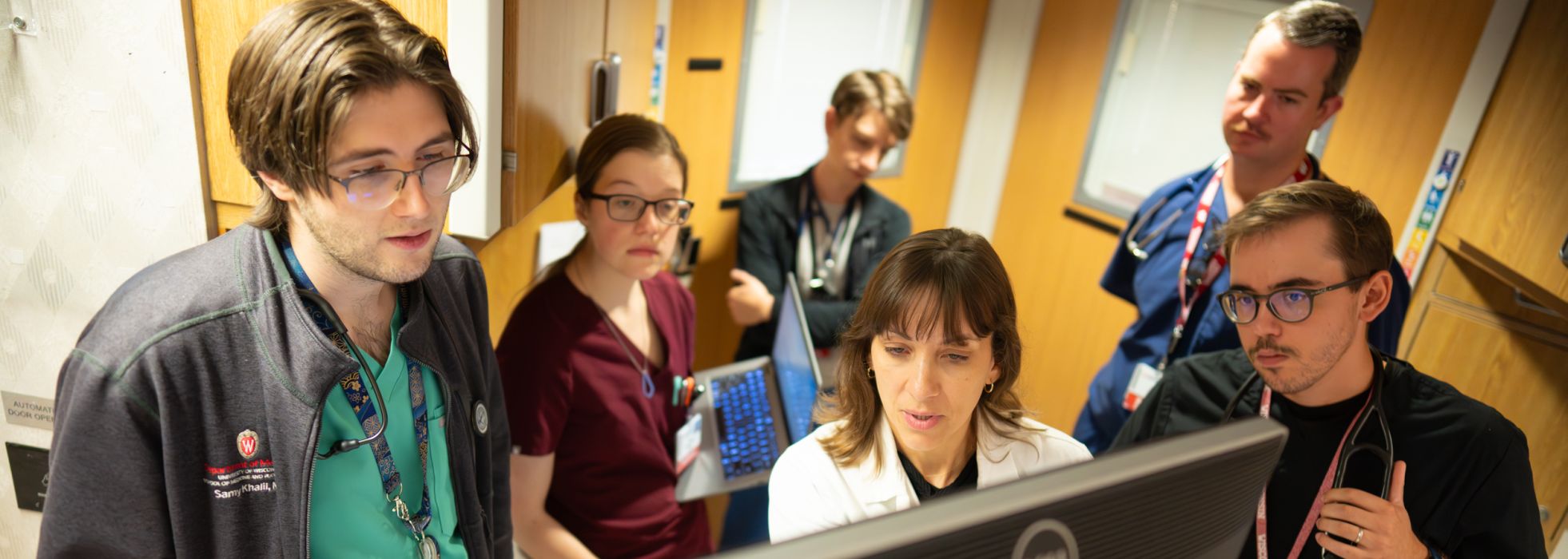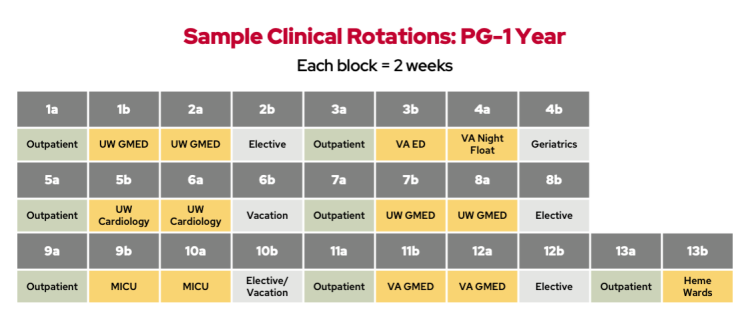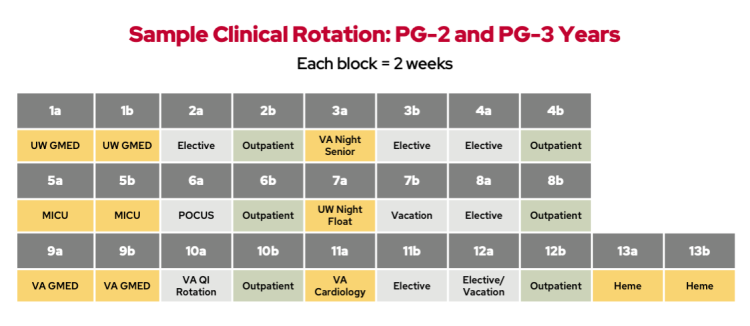Flexibility and Individualization
Flexibility is a key feature of the University of Wisconsin internal medicine residency. Our chief residents work with you one-on-one to build an individualized schedule that fits your individual needs and promotes your personal, clinical, and professional growth.
PG-1 Year
For our interns, we are a 4+2+2 program with repeating 8-week blocks consisting of:
- 4 weeks of inpatient rotations (wards, consults, ICU)
- 2 weeks of elective or professional development opportunities (including research)
- 2 weeks of an academic ambulatory block (with primary care clinics, ambulatory subspecialty experiences, protected time for academic activities and research, and an academic didactic day on Fridays for clinical didactics, track-based activities, simulation, and well-being activities)
PG-2 and PG-3 Years
PG-2 and PG-3 internal medicine residents continue to have a core 4+2+2 model, with additional with additional elective and research blocks that can replace some inpatient rotations.
Ambulatory Experiences
You will begin to see patients in your continuity clinic practice early in your intern year, and continue those relationships throughout the rest of residency. You will work with a small group of preceptors with a designated faculty mentor. These preceptors are selected based on our residents’ teaching evaluations and are dedicated to your clinical and professional growth in the outpatient setting.
During subspecialty elective experiences, you will have the chance to see patients in both the inpatient and outpatient settings.
During the spring of your intern year, you have the chance to elect a longitudinal subspecialty clinic with a faculty mentor of your choosing. PG-2 and PG-3 residents spend the same half-day in this secondary clinic during each elective and ambulatory block throughout the year.
Educational and Elective Time
Internal medicine residents work with the program and our chief residents to find the optimal elective experiences to balance their training. Popular electives in our program include:
- Dedicated research time (to work on clinical research or QI and educational projects)
- Time on subspecialty consult services
- Additional time in subspecialty ambulatory clinics
- The procedures service
- The POCUS service
- Community service experiences for medically underserved populations, including the UW School of Medicine and Public Health's student-run MEDiC program and other Madison-based clinics providing health care for low-income, housing-insecure or medically underserved populations.


